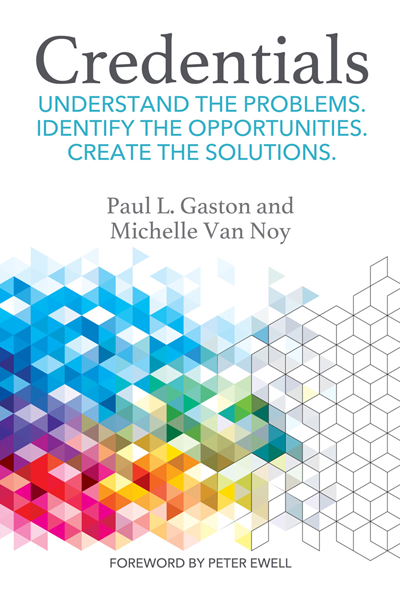
EERC's recent work on credential quality is outlined below.
Measuring What Matters for Non-Degree Credentials and Noncredit Programs
How do we measure and define quality in non-degree credentials and noncredit programs? This brief provides a new, holistic framework to address this need. Authors Michelle Van Noy and Katherine Hughes offer practical recommendations for states and institutions working to ensure credential quality as the field expands.
Non-degree Credentials Blog Series
This 12-part blog post series explored the landscape of quality improvement for non-degree credentials, with a particular focus on quality influencers with a mission of understanding and strengthening learner outcomes. These are published on https://workshift.org.
Mapping the Non-degree Credential Quality Market
As non-degree credentials (NDC) become increasingly common offerings in the education and training marketplace, the importance of developing systems to ensure their quality is a policy imperative. To create a more systematic approach to NDC quality, this project addresses two overarching questions: Who are the organizational actors in the NDC marketplace? How do they influence quality? This project examines potential influences on NDC quality in the credential marketplace and provides a roadmap of the organizations and initiatives currently involved in overseeing NDC quality. It seeks to contribute to the discussion of how to build on this existing infrastructure to create a more robust and coherent system to promote quality in the NDC marketplace.
Quality in Community College Non-Credit Education
An estimated 5 million students enroll in noncredit courses and programs at community and technical colleges each year. This project examines how community colleges ensure quality in noncredit programs and how students make choices about pursuing these credentials.
Non-Degree Credential Quality: A Conceptual Framework to Guide Measurement
More than one quarter of adults in the United States have some type of non-degree credential, according to a survey by the National Center for Educational Statistics. Yet there is little guidance on how to evaluate the quality of these credentials.
This paper outlines a broad framework to guide the development of standards and processes to measure the quality of non-degree credentials. The paper is intentionally broad to allow stakeholders to identify those elements that are most essential for their purposes while keeping a few key guidelines in mind.
Review of the Evidence on Noncredit Education
EERC conducted a review of the existing research literature on outcomes from noncredit education.
In addition to EERC's extensive project work on credential quality, Director Michelle Van Noy co-authored a book on the subject, which can be purchased here.
Credentials: Understanding the problems. Identify the opportunities. Create Solutions
Paul L. Gaston and Michelle Van Noy, Forward by Peter Ewell

The credentials environment grows more complicated by the day. This book enables readers to grasp the key issues and take informed action.
For ease of reference, each chapter opens with a summary of its content and closes with a list of key takeaways for readers to consider.
The plan of the book reflects the authors’ practical aim. In the first of three parts, they offer a broad view of the topic―how credentials work, how a proliferation in credentials has created an unprecedented array of educational choices, and the implications of this abundance in considering the models to use. In the second part, they focus on categories of credentials, from the associate degree, to doctoral degrees, and to non-degree credentials. The book concludes with two chapters that consider the implications of the information the authors provide for leadership in volatile times, such as considerations of equity; and offer twelve propositions for action.


